Research
HOME > Research > Research Outputs
Research Outputs
A study on artificial intelligence applications
A study on reinforcement learning algorithm of AI robot soccer
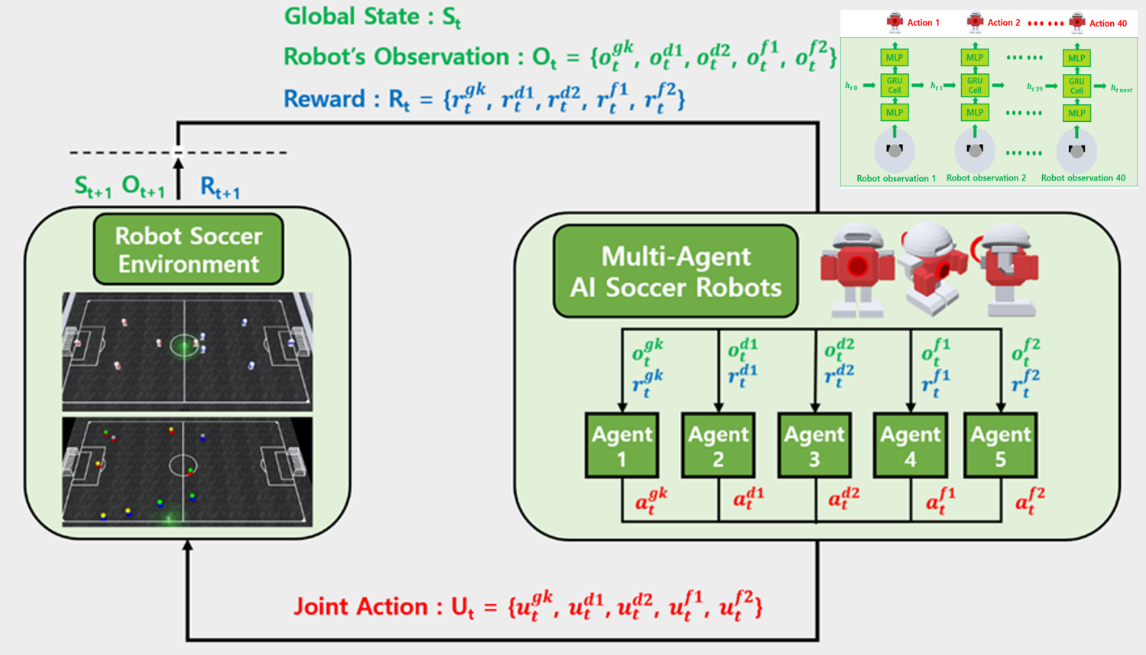
- Development of tactical algorithm using multi-agent reinforcement learning based on 5:5 AI robot soccer competition platform based on robot simulator
Multi-goal reinforcement learning
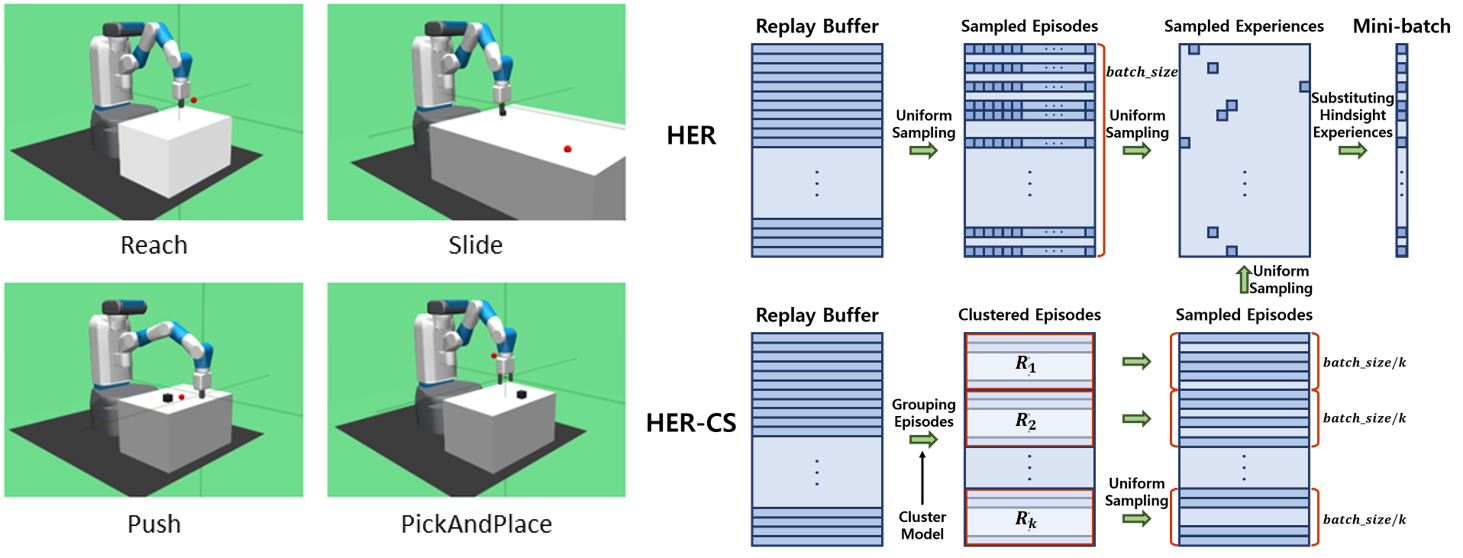
- Development of reinforcement learning algorithms in the tasks which has multiple goals
- Research to improve the learning speed and the success rate by modifying and developing existing algorithms in this area
A study on deep learning-based point cloud registration
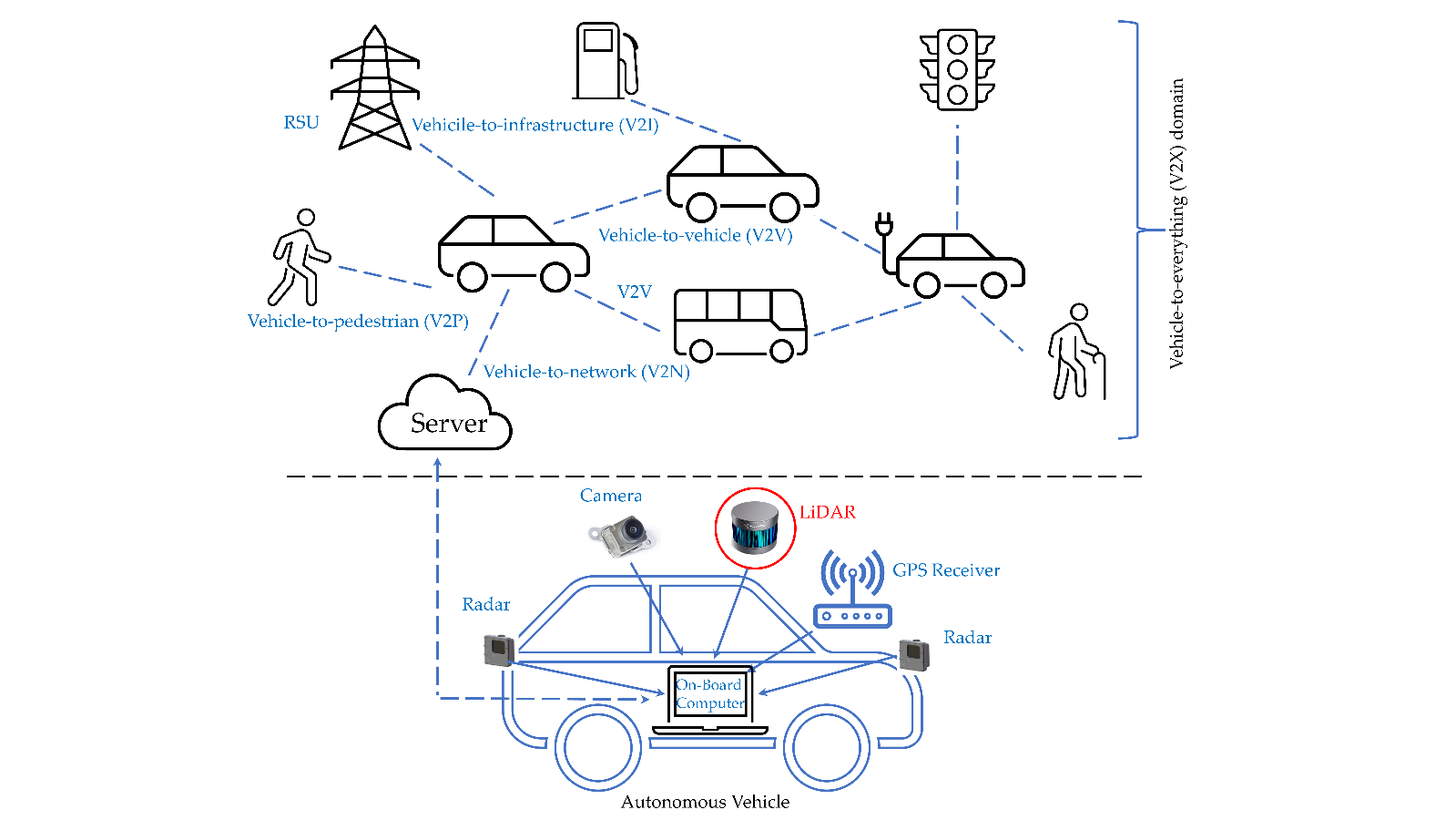
- Development of a framework that efficiently and economically extracts dense features using graph attention network for point cloud matching and registration which has many applications such as localization, mapping, tracking, and reconstruction
Camera pose estimation using deep learning

- Lightweight architecture for relative pose regression
- Two-stage training approach
- Generalization to unseen data distribution
A study on smart city mobility services using multi modal data
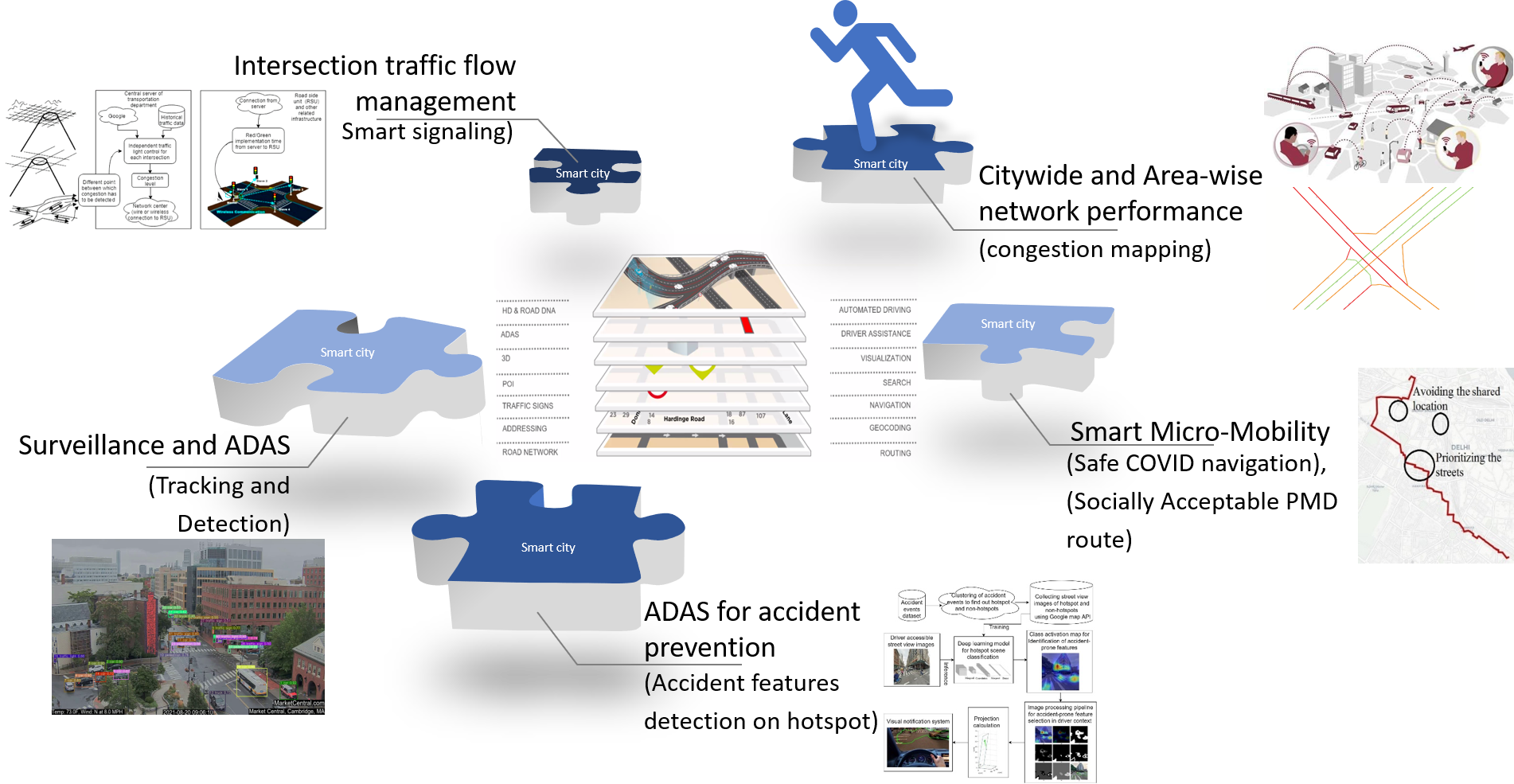
- Development of smart city mobility services to facilitate smart and safe living in cities
- Smart mobility services are mainly composed of intersection traffic flow, citywide and area-wise network performance, surveillance and ADAS, smart micro-mobility, and ADAS for accident prevention
A Study on localization, path planning, and control of autonomous driving robots
6-1. Visual localization
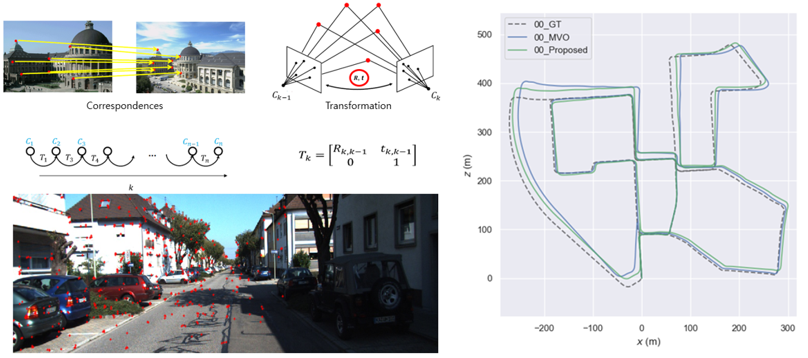
- A study on the learning-based module for the performance improvement of the existing visual odometry
- Improvement of visual odometry pipeline, development of visual odometry algorithm
- A study on the deep learning based visual localization method
6-2. Path planning

- A study on the route planning method for autonomous driving of mobile robots
- Development of energy model for mobile robots
- Development of energy efficient path planning method considering the slope, distance, and load to be laid down at a specific destination
6-3. Mobile robot control utilizing reinforcement learning

- A study on reinforcement learning framework for efficient mobile robot driving learning
- A study on reinforcement learning algorithm for efficient learning
- Development of technology for enhancement of reinforcement learning performance
A study on smart energy network technology
1. Development of an open-distributed-decentralized energy network and communication system for energy routers

- Development of energy router communication system with low latency, reliability and security
- Development of an open-distributed-decentralized communication structure for the control of multiple devices connected in mesh form
- Development of a communication protocol optimized for energy routers for bidirectional power transmission
2. Development of power management algorithm for nanogrids
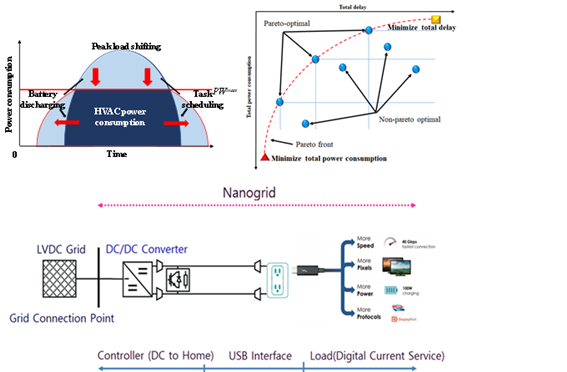
- Development of optimal power management algorithm for nanogrids
- For evaluation of power consumption, the operation of heaters, ventilation fans and air conditioners according to the resident location, and large-scale energy storage systems as auxiliary power sources are considered.
3. Development of multi electric vehicle charging system for customer convenience-based parking tower for carbon neutrality
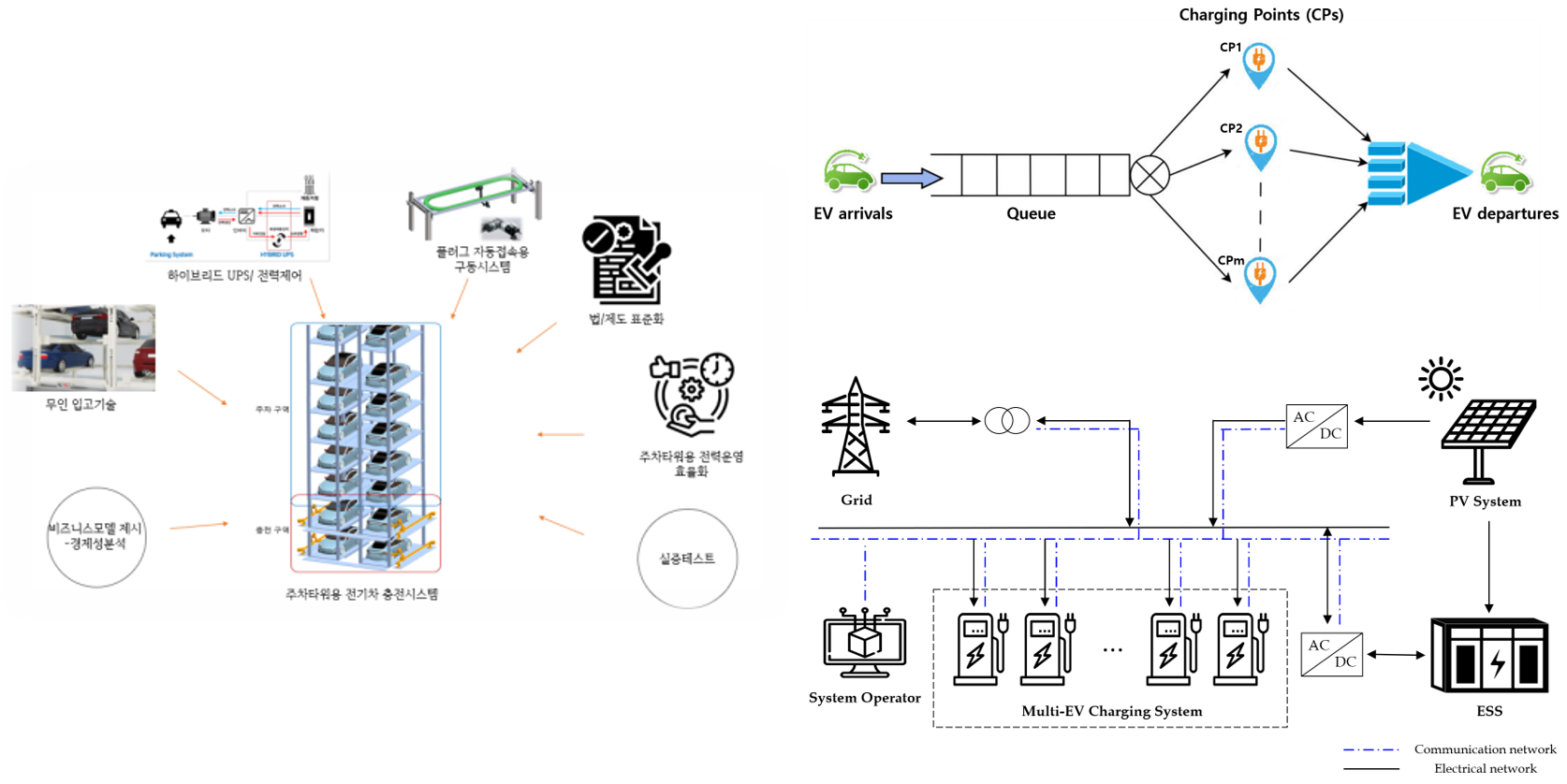
- Development of an automatic charging system that improves electric vehicle charging performance and considers user convenience by separating charging and parking areas
- Development of intelligent electricity network architecture for charging efficiency for parking towers
4. Development of electricity network operation and management technology based on smart meter measurement data
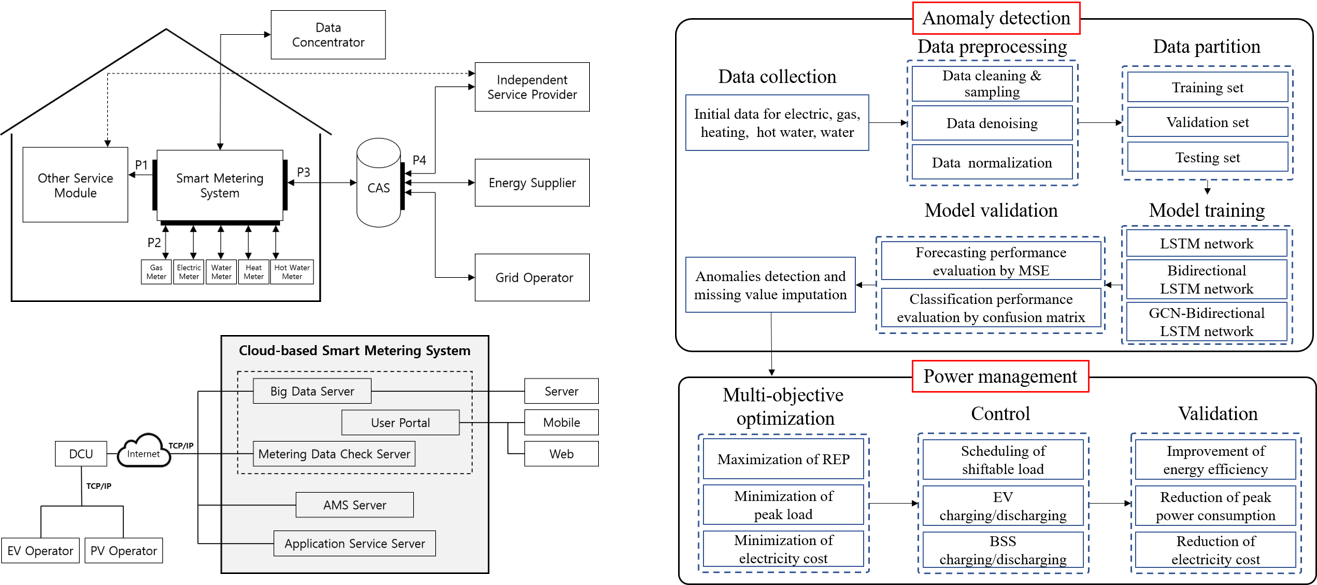
- Development of power management algorithms based on intelligent advanced metering infrastructure environments, which are systems that measure, collect, and analyze power usage periodically
5. A hybrid graph neural network approach based optimal energy management for photovoltaic and dual energy storage system integrated with utility grid
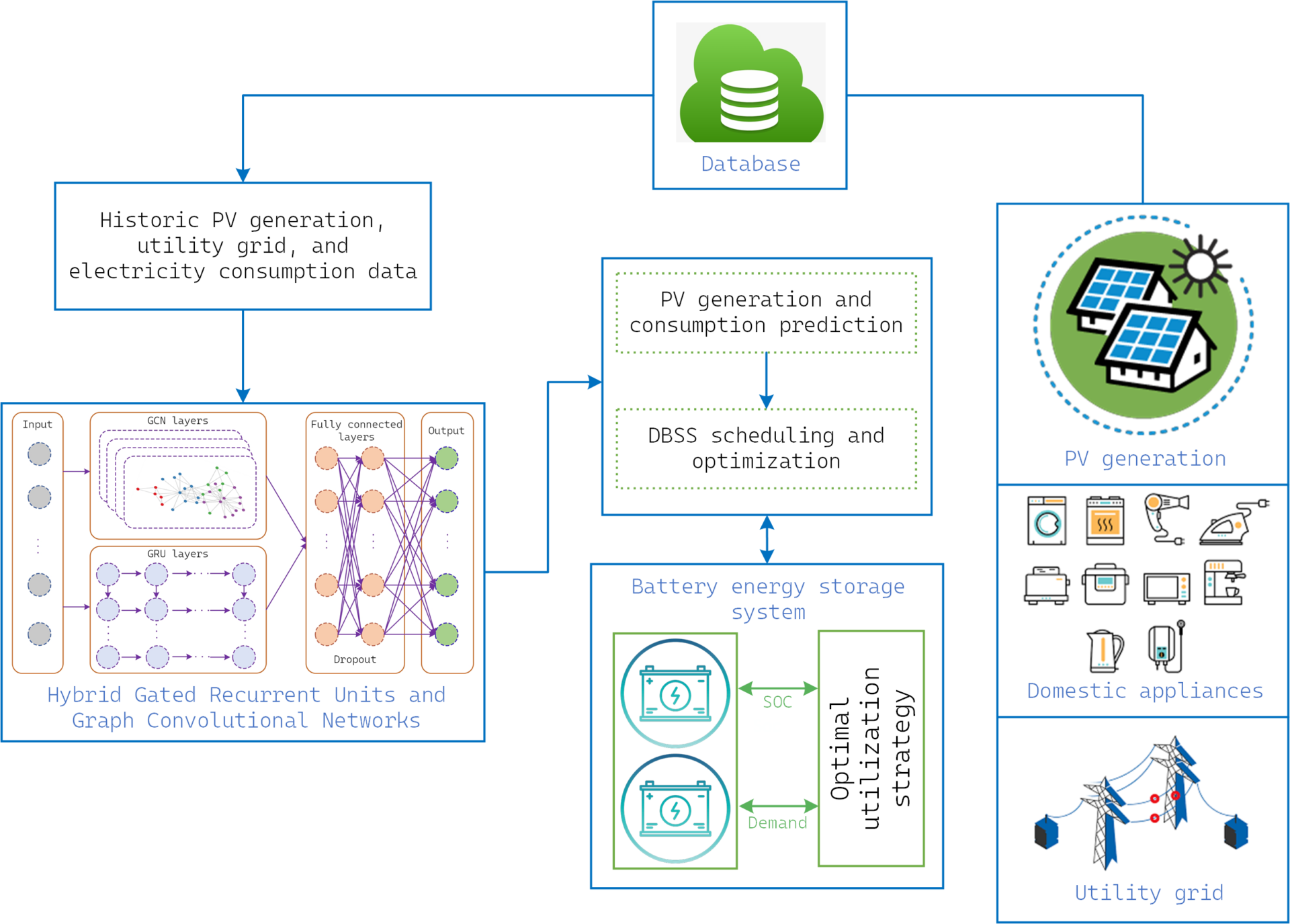
- Hybrid gated recurrent units and graph convolutional networks are used for the optimal utilization of photovoltaic energy by the consumer, and for the effective utilization of energy stored in the batteries
- The benefits of different energy tariffs and dual battery storage system are considered in terms of maximizing feed-in-tariff revenue streams for current photovoltaic system



